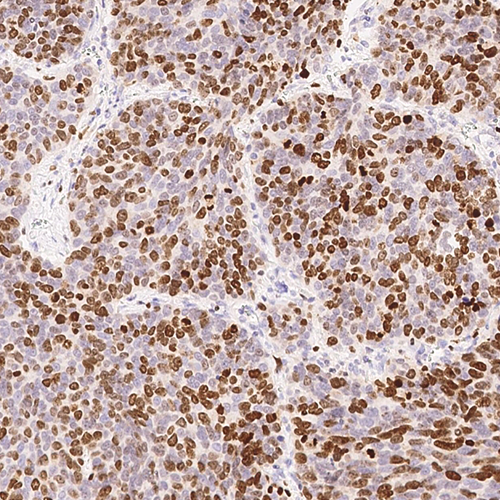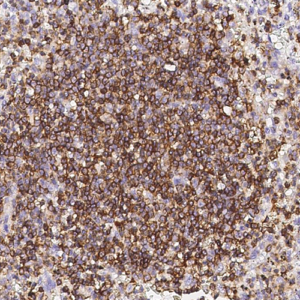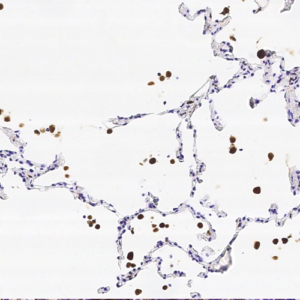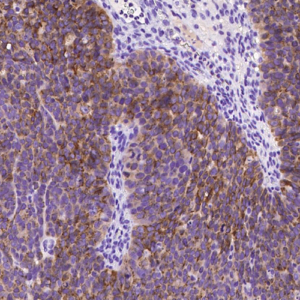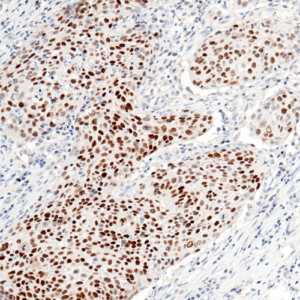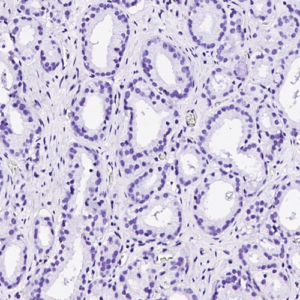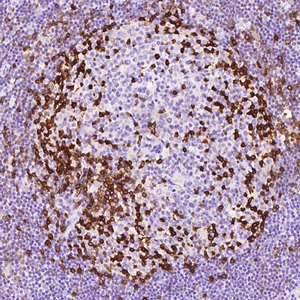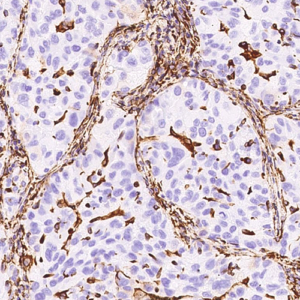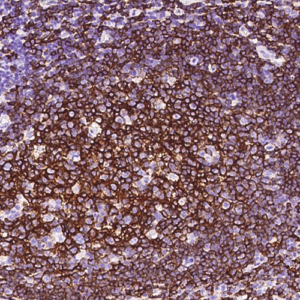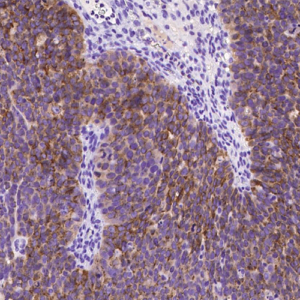MKI67 contains 1 FHA domain and plays a key role in cell proliferation. During interphase, the MKI67 antigen can be exclusively detected within the cell nucleus, whereas in mitosis most of the protein is relocated to the surface of the chromosomes. MKI67 protein is present during all active phases of the cell cycle (G1, S, G2, and mitosis), but is absent from resting cells. MKI67 is an excellent marker to determine the growth fraction of a given cell population. The fraction of MKI67-positive tumor cells is often correlated with the clinical course of cancer. It is also associated with ribosomal RNA transcription. Inactivation of antigen MKI67 leads to inhibition of ribosomal RNA synthesis. The MKI67 protein is a nuclear and nucleolar protein, which is tightly associated with somatic cell proliferation. Antibodies raised against the human MKI67 protein paved the way for the immunohistological assessment of cell proliferation, particularly useful in numerous studies on the prognostic value of cell growth in clinical samples of human neoplasms. MKI67 protein expression is an absolute requirement for progression through the cell-division cycle. Recently, MKI67 is proved to be an independent prognostic factor for disease-free survival (HR 1.5-1.72) in multivariate analyses studies using samples from randomized clinical trials with secondary central analysis of the biomarker. MKI67 was not found to be predictive for long-term follow-up after chemotherapy. Nevertheless, high KI-67 was found to be associated with immediate pathological complete response in the neoadjuvant setting, with an LOE of II-B. MKI67 could be considered as a prognostic biomarker for therapeutic decision.
SKU: KPIH10155
KI-67
| Pack Size | 100 ul |
|---|---|
| Source | Mouse |
| Clone | 19 |
| Class | IgG |
| Isotype | IgG1 |
| Tested Reactivity | Human |
| Localization | Nucleus |
| Pretreatment | Thermal Remediation |
| Applicable Tissue | Paraffin Section |
| Positive Control | Human breast |
| Storage Temperature | Store at -20 Degrees |

